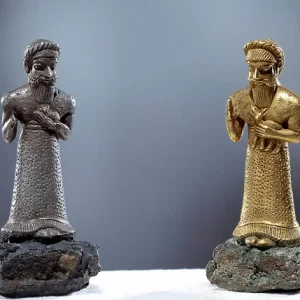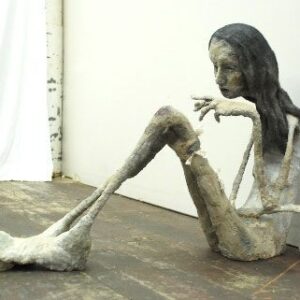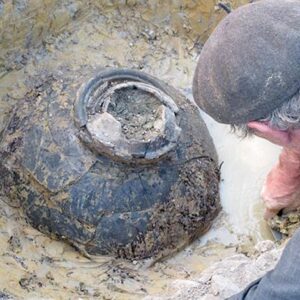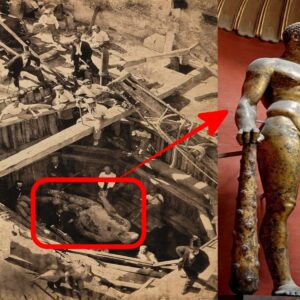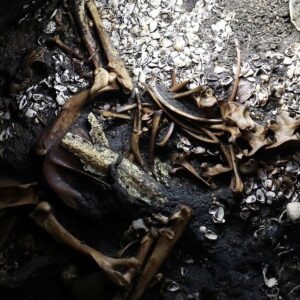Mystery of the ancient kingdom discovered in Nepal where thousands of caves are carved 155ft off the ground. An estimated 10,000 of the caves have been found in the former Kingdom of Mustang in North, Central Nepal. They have either been dug into the cliffside or tunnelled from above. Caves are thousands of years old but who built them and why remains a mystery.
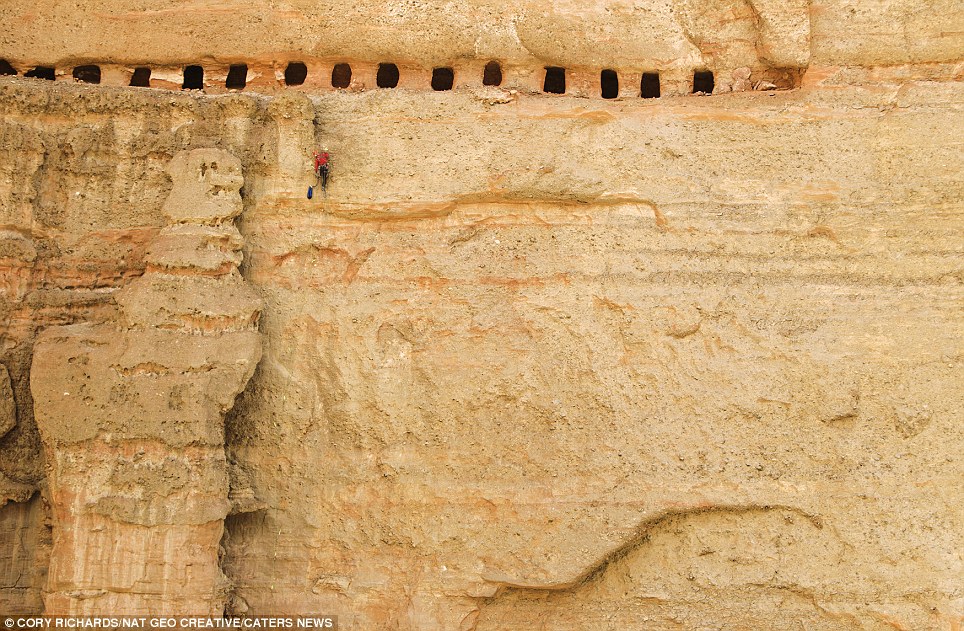
Mystery: Thousands of man-made caves 155ft from the ground lie hidden within the Himilayas in a gorge so large it dwarfs the Grand Canyon
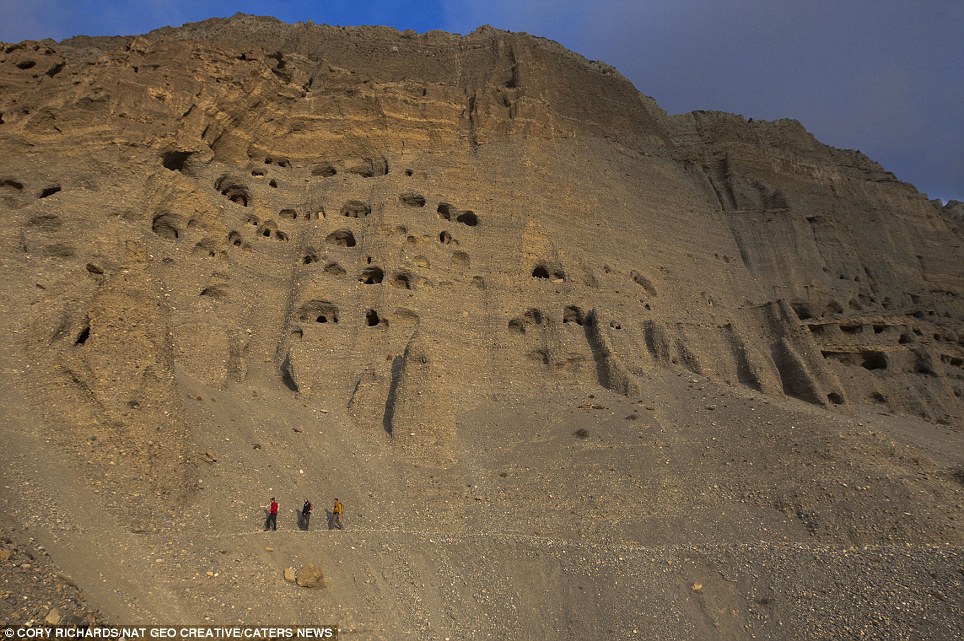
Bizarre: With dozens of holes carved into the fragile, sandy-coloured cliff face this unusual ‘neighbourhood in the sky’ looks like a giant sandcastle
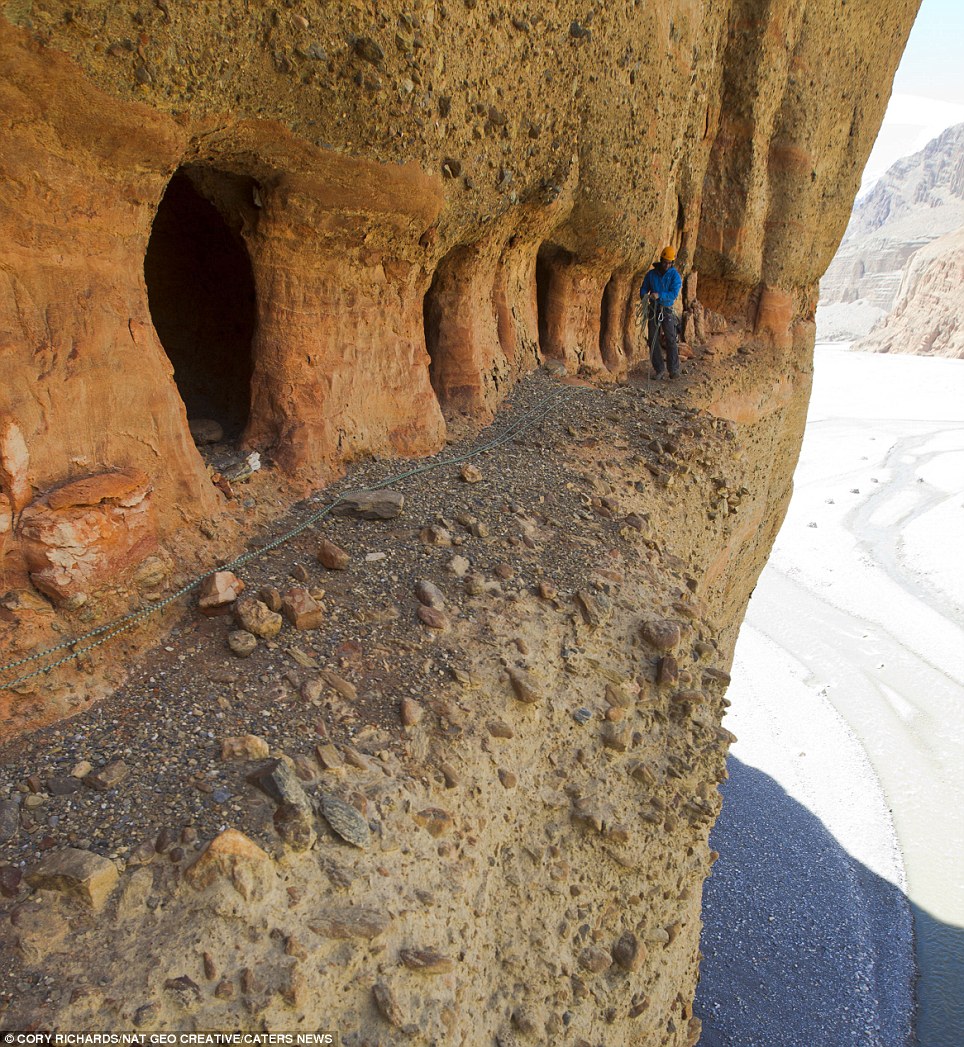
Dangerous: Climber Cedar Wright explores the series of caves near the village of Tsele
Hidden within the Himalayas, 155ft from the ground, these man-made caves are one of the World’s greatest archaeological mysteries.Thousands of holes are carved into the fragile, sandy-coloured cliff in a gorge so large it dwarfs the Grand Canyon.
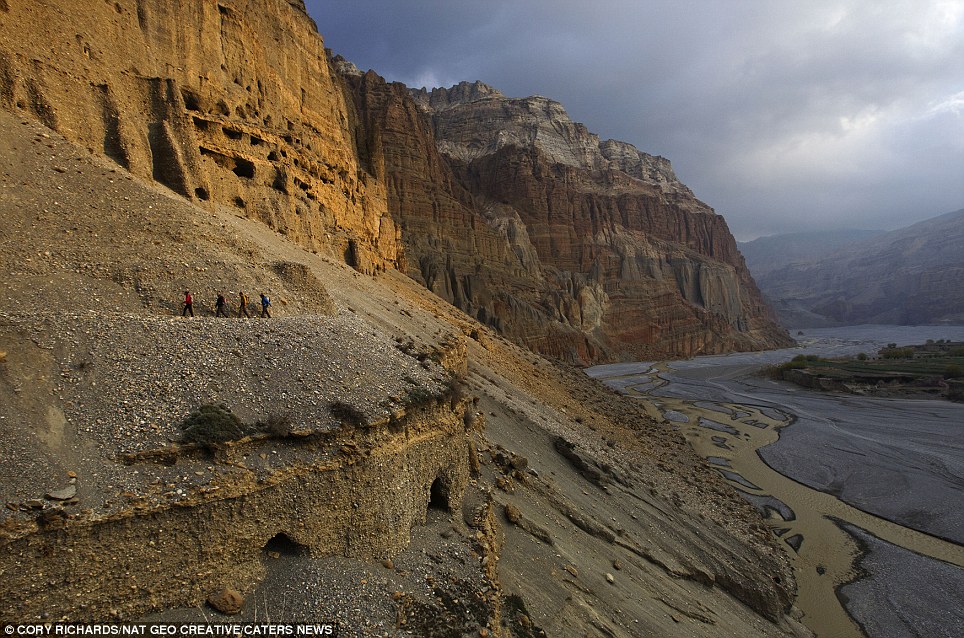
Adventure: Climbers and scientists follow a trail above the Kali Gandaki River
The astonishing number of caves, some dug into the cliffside, others tunnelled from above are thousands of years old but who built them and why remains a mystery.It is also not known how people climbed into the caves which are dug into a cliff 155-foot above the valley floor.
An estimated 10,000 of these mysterious human-built caves have been found in the former Kingdom of Mustang in North, Central Nepal. Those who have seen the mysterious caves say the effect of them on the cliff face makes it look like a giant sandcastle.
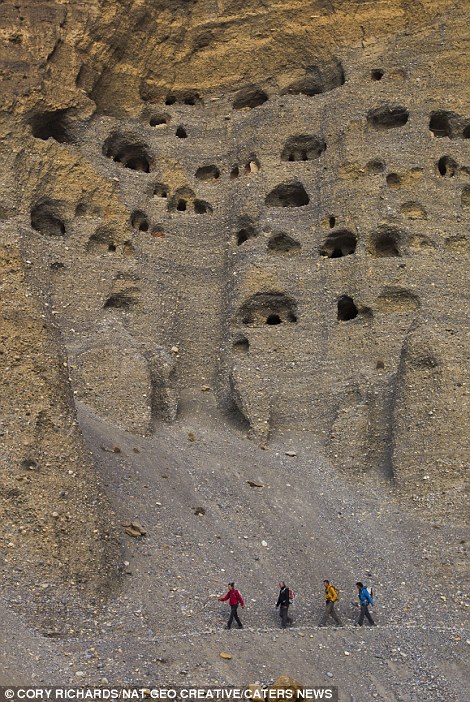
Adventure photographer, Cory Richards joined climber Pete Athans, archaeologist Mark Aldenderfer and a team of explorers to unearth the hidden relics of the ancient and remote caves. Mr Richards said: ‘I was in Nepal working in this village called Forte, where Pete [Athans] and I were teaching a group of Sherpas climbing techniques, safe climbing techniques so they could climb Everest. And Pete asked me if I would be interested in this project in Mustang. He started telling me about this place where we were going. The words he was using conjured these images of a place I couldn’t really imagine.
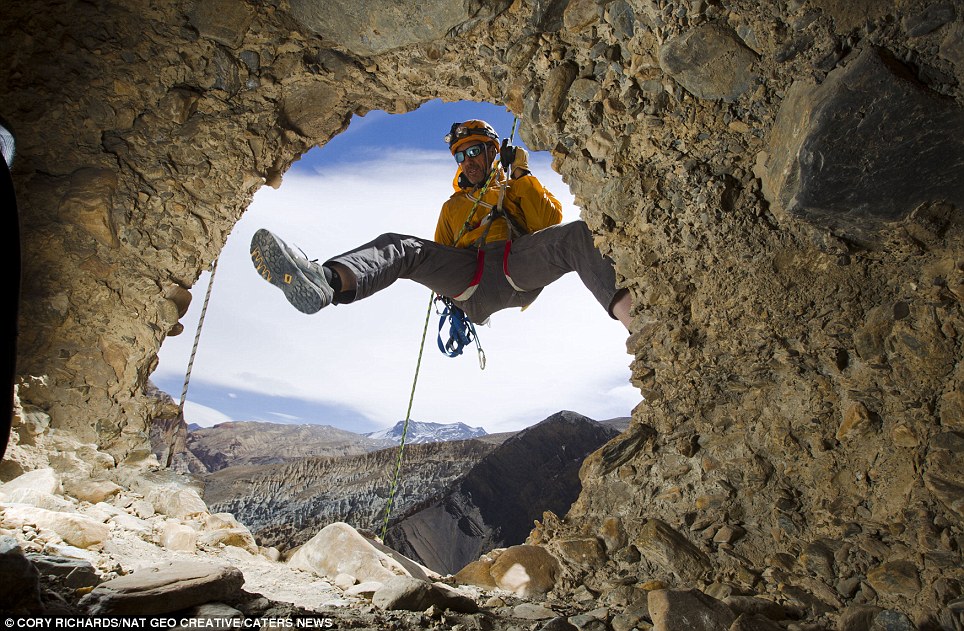
High up: Climber Pete Athans looks inside a cave found near Chuksang. It is not known how people climbed into the caves which are dug into a cliff 155foot above the valley floor
Quite honestly when I got there it was even bigger and more grand than anything I ever could ever have imagined. ‘We’re talking about somewhere that reminds us of the Grand Canyon, the desert south west but then has this incredible history to it. You see these caves carved into the rock and now they’re completely inaccessible.
As we started getting deeper into it, I started to see the magic of what we were approaching, the culture in practice, a 12th century village underneath the caves they used to live in, caves that are now forgotten. We started asking questions about how did people get into them?
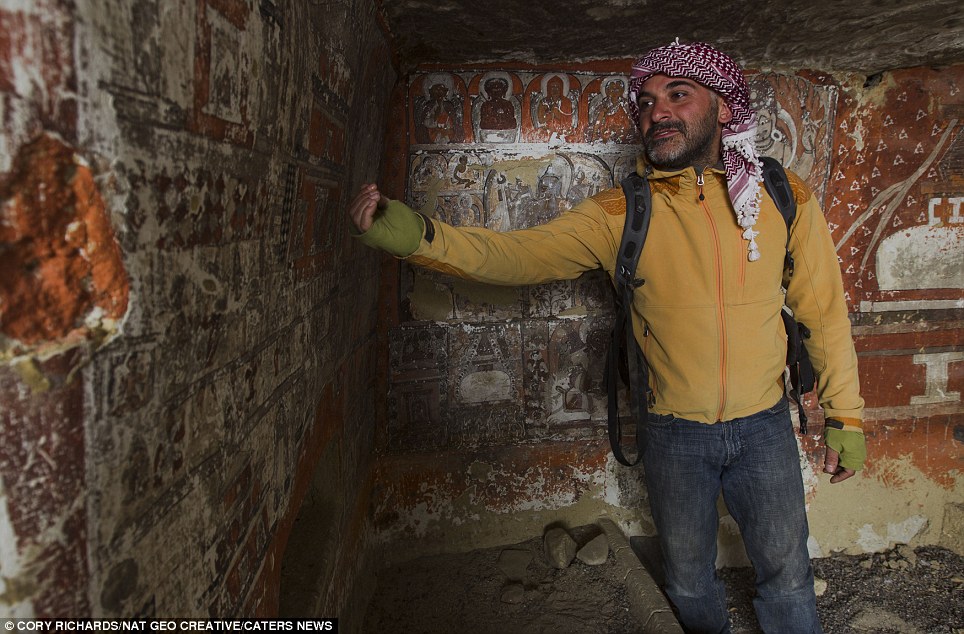
Impressive: This image shows eroded murals on the walls of the Ritseling Cave in Upper Mustang. The astonishing number of caves are thousands of years old
I started wondering how do I light up people’s imagination to make them think what it would have looked like thousands of years ago, that was my final challenge, how do I give people that imagination.
One of the ways we did that was lighting up the caves, going them into them a night, spending the night in caves, using lights to light them up and strobes. Trying to give people the feeling this is a very ancient place, this is a place that has so many stories to tell us so much more than we can even really imagine in our lifetime.
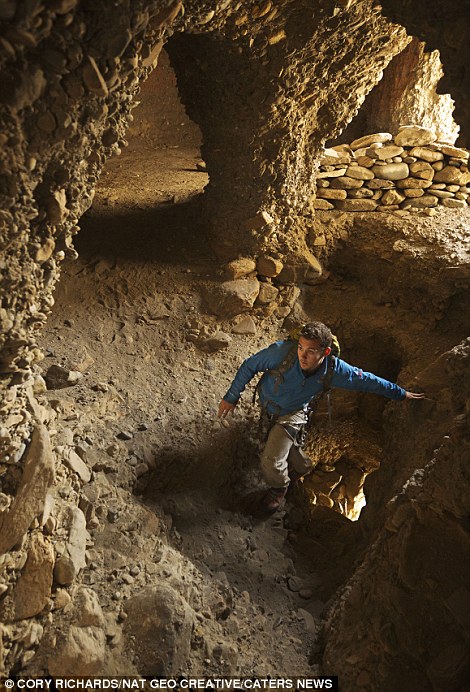
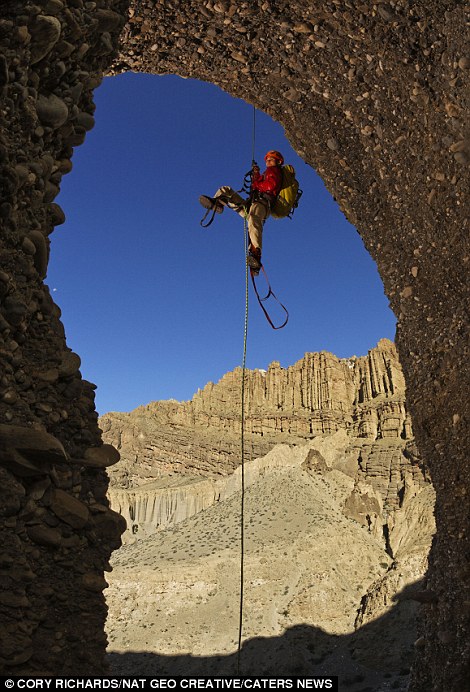
Discovery: A scientist enters a maze of rooms in a looted cave near Chuksang, left, while another member of the team hoists himself up at a Mustang cave entrance, right
Climbing into the sky caves was no easy feat, the rock was unstable and posed a real danger to the team of explorers. In fact climbing into the caves was so dangerous, Mr Richards lost his footing, fell and broke his back. On another assignment to Mustang the following year, videographer Lincoln Else was hit by a falling rock, fracturing his skull.
He said: This was real exploration. It’s dangerous it’s loose rock it’s scary. Everything is loose, everything around you feels like it’s crumbling. You feel like when you’re climbing everything is going to collapse.
One of the things I think we forget when we’re talking about adventure, science and exploration is it gets dangerous at times one of the reasons it’s so exciting is because there are consequences and big consequences. On my first trip there I was trying to climb in and a foothold broke and I fell about 12-20 feet, I landed on my butt and I broke my back. It was an eye-opener because yes it this was really exciting, really engaging, I want to tell this big story but I just broke my back, maybe this isn’t as important as I thought.
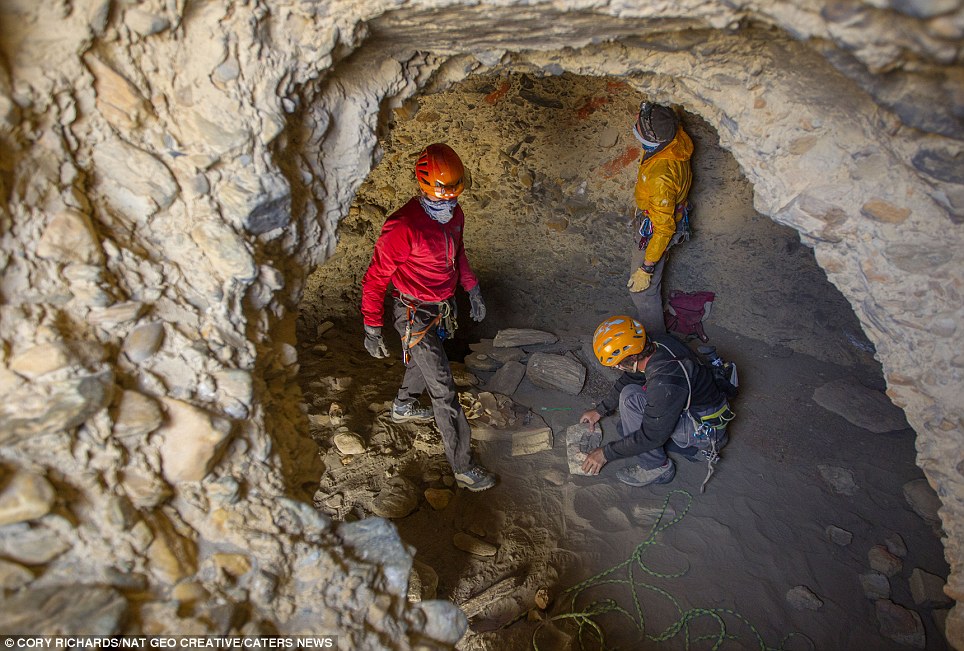
Exploration: Members of the team do a preliminary survey of a cave
The next year we came back to try again. I took this shot and my friend Lincoln Else was filming right next to me. Next thing I heard was Pete’s wife scream, she said “oh my god, oh my god” Lincoln was lying on the ground with blood pouring from his head and convulsing.
A rock had fallen from above, hit him and given him a 21cm skull fracture, it completely depressed his skull. Again it was a point of realisation that yes what you are doing is very important but it’s also very dangerous and when you talk about adventure there are sides to it that are unpleasant.
Lincoln made a full recovery, I thought for certain I think we all thought at the point that Lincoln was going to die. Essentially at the end of the experience, what was illuminated to me the marriage of science and exploration and culture is the ultimate in how we bring the world to everyone.
‘We have to make it exciting, digestible but we also have to give the knowledge of what’s out there to everyone else.

